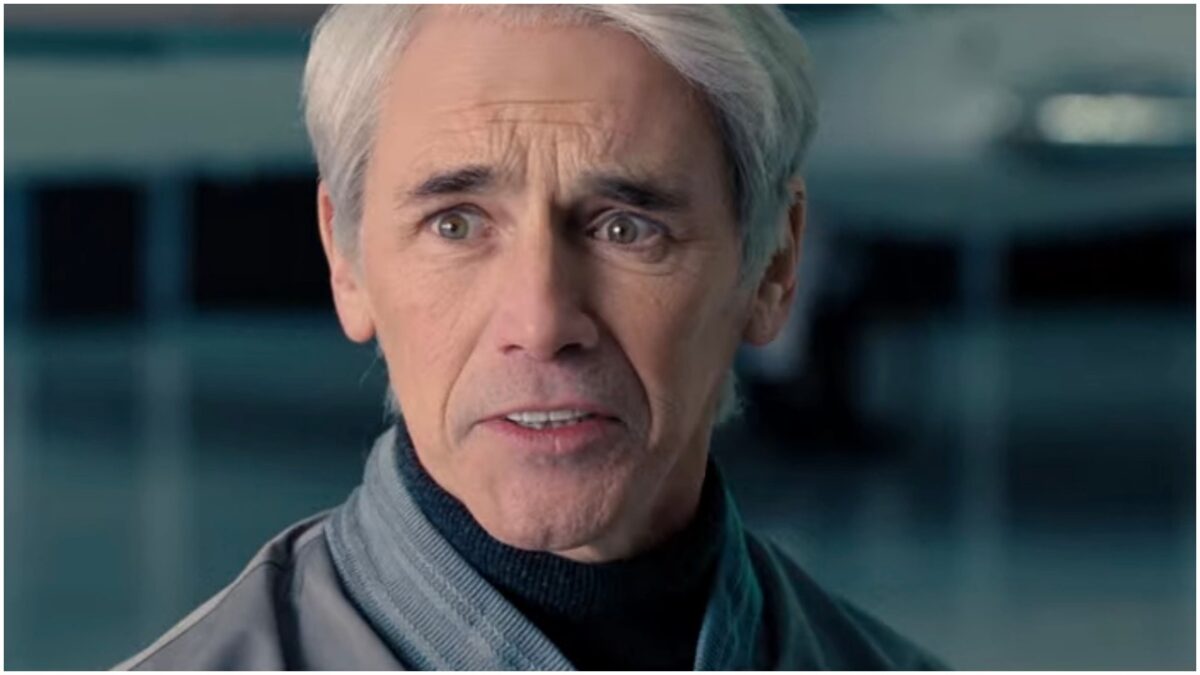After being out for a few weeks now, it seems that people are still talking about Adam McKay’s latest film, Don’t Look Up, but perhaps not for all the right reasons. The film, which co-stars Leonardo DiCaprio and Jennifer Lawrence, is a satirical black comedy on the relationship between the scientific community, the government and the social media distracted masses. So why are people so angry about the movie and does it deserve some of the more critical reactions?
The premise for Don’t Look Up is a simple one, even if the film itself isn’t. DiCaprio stars as Dr. Randall Mindy, a Professor at the University of Michigan who works with his colleague, Ph.D. candidate Kate Dibiasky. While doing a routine and banal look into the sky, she ends up discovering a new comet. Party in the lab. It’s only when they start crunching some numbers that the horror of the reality sits in: this comet is on a crash course with Earth, T-minus 6 months.

What follows is a cringe-inducing satire of the government’s reaction to scientific data, how big tech ignores the peer review system and how social media has distracted and manipulated us. The whole may be about a comet, but the whole movie is an allegory for climate change and how slow and indifferent our reaction to it has been. While this was the inspiration, global events like the pandemic that happened after the movie was green-lit in 2019, meaning that a lot of the scenarios also apply to the reactions to COVID-19.
After presenting their data to their colleagues, Dr. Mindy and Kate end up at the White House to meet President Janie Orlean and her chief of staff, played by Meryl Streep and Jonah Hill respectively. Now, it’s not a far stretch of the imagination to see that Streep’s iteration of POTUS is heavily inspired by Donald Trump. She’s tanned, has dedicated followers with a slogan plastered on their caps (the titular Don’t Look Up), has a porn scandal and her chief of staff is her son, much like how Ivanka Trump was her father’s advisor. Streep’s President Orlean follows a lot of the same ideologies and reactions we’ve seen Trump display in the media and it’s evident the government isn’t going to take the threat of extinction seriously (until it benefits them politically).
The film doesn’t just rip into politics though. From social media, celebrity and fame, these facets are also the subject of ridicule in Don’t Look Up. The film highlights that despite extreme and severe situations, how easy it is for the masses to turn something into a meme. Likewise, it highlights that despite grave, life-altering events happening around us, we turn to celebrity for distraction and how easy it is to fall into the trap of the media circus once you’re in it, whether this means appearances on TV, magazine covers or commercials, all of which could devalue and conglomerate the field of science. A scene that breaks down key engagement with audiences after the news of the comet broke shows just how news and social media companies think; it’s not about accuracy or facts, it’s about engagement.

Already, you can likely see why this movie was hit with such divisive reviews. Don’t Look Up isn’t just a comedy but a satire. A satire, by definition, is “the use of humor, irony, exaggeration, or ridicule to expose and criticize people’s stupidity or vices, particularly in the context of contemporary politics and other topical issues.” Despite the movie being about the comet, it’s actually about how politics and personal agendas dictate the narrative, either through manipulation or ignorance. As such, there are a lot of journalists out there who have slammed the movie based on their own political beliefs, or for feeling attacked as a member of the media.
As such, the critical average for Don’t Look Up is quite mixed. Wired stated that “Don’t Look Up nails the frustration of being a scientist” while The San Francisco Chronicle said “Don’t Look Up might be the funniest movie of 2021. It’s the most depressing too, and that odd combination makes for a one-of-a-kind experience. Writer-director Adam McKay gives you over two hours of laughs while convincing you that the world is coming to an end.” The Hollywood Reporter said that the movie was “a cynical, insufferably smug satire stuffed to the gills with stars that purports to comment on political and media inattention to the climate crisis but really just trivializes it” while Variety claimed it was “smug, easy-target political satire”. This back and forth goes on for some time in the media. All wasn’t black and white though. Nathan J. Robinson, the editor of Current Affairs, wrote that “critics were not only missing the point of the film in important ways, but that the very way they discussed the film exemplified the problem that the film was trying to draw attention to. Some of the responses to the movie could have appeared in the movie itself.” I think he hit the nail with the hammer with that remark.

Don’t Look Up certainly can be heavy-handed with its satire, but I think it had to be to show the absurdity of the situation. It did run for too long though. Clicking in shy at two and a half hours, the movie did lose some of its momentum the longer it went on. Likewise, its satirical depictions became far more far-fetched and unimaginative. The final few minutes of the movie, including the after-credit scene (yes, there’s an after-credit scene), feel like someone threw in the most bonkers ideas together for the grand finale. While most of the movie is about how the government and the masses dismiss scientific data, the longer it went, the more it felt like a cartoon rather than a satire. Maybe that was the intention, but it broke the spell for me.
That apart the film was quite interesting and chock-full of McKay’s signature quick edits and humorous inserts. The performances from DiCaprio and Lawrence were quite strong and almost everyone did a good job at making us hate them or the situation. Mark Rylance shows up as Peter Isherwel, who is the bizarre conceptual lovechild of Elon Musk, Steve Jobs and Andy Warhol. Cate Blanchette and Tyler Perry play the overly jolly and narcissistic TV personalities, who always seem to cast aside grave news in favour of a laugh. Jonah Hill was the odd one out for me, who felt like he was overdelivering his lines as a Chief of Staff who was both dumb but living his best TikTok life.
But don’t let other critics and the Tomato Meter dictate whether you should be watching a movie or not. If it looks interesting to you, regardless of your political agenda, give it a go. You may find it funny, enlightening, infuriating for various reasons, dumb. But you’ll make that opinion yourself, as opposed to dismissing it ahead of time based on other people’s opinions. Ideally, film critics should be looking at movies without too many biases others than if they liked the craft, but we don’t live in that world. Outside views and beliefs help influence critical opinions, which in turn is what you, the reader, are given. Despite the mixed reviews, the film still was a hit for Netflix, which comes right back to the engagement part of this editorial. Some things in life just aren’t as important as SEO and engagement.



One thought on “Does ‘Don’t Look Up’ Deserve Its Mixed Reviews? – ScreenHub Entertainment”